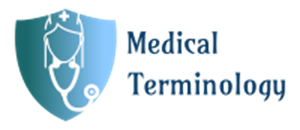High school students who embark on learning the language of medicine open themselves to many benefits that extend far beyond the classroom. This specialized knowledge offers advantages in academic, professional, and personal realms, equipping students with skills and insights that can profoundly shape their futures.

Academic Excellence and College Preparation
Firstly, mastering medical terminology enhances a student’s academic portfolio. It demonstrates a commitment to challenging subjects and a complex, analytical thinking capacity. This can be particularly advantageous for college applications, signaling to admissions officers that the student is serious about pursuing a career in healthcare or related fields. Additionally, early familiarity with medical language prepares students for advanced biology, chemistry, and health sciences courses, giving them a head start in pre-med or related college programs.
Career Readiness
Understanding the language of medicine provides a significant head start for students interested in medical careers. Whether aspiring to be doctors, nurses, pharmacists, or medical researchers, early exposure to medical terminology lays a strong foundation. It makes the transition to college-level coursework smoother and helps understand clinical practices and healthcare systems. For students pursuing internships or volunteer opportunities in medical settings, this knowledge can make them more effective and valuable, as they can communicate more precisely and understand clinical instructions better.
Enhancing Critical Thinking and Problem-Solving Skills
The language of medicine is inherently analytical. Learning it requires students to engage in critical thinking, problem-solving, and applying complex concepts. These skills are transferable to any field and highly valued in academic and professional settings. By deciphering medical terms and understanding their applications, students enhance their cognitive abilities and analytical mindset, which are beneficial in tackling various life challenges.
Personal Health Literacy
On a personal level, high school students with a grasp of medical language are better equipped to understand health information and make informed decisions about their own well-being. They can comprehend medical literature, recognize symptoms, and understand treatment protocols, which fosters a proactive approach.
There is a free online medical terminology course (with the purchase of a world class textbook) Learn more about this exceptional medical terminology textbook and online medical terminology course.
